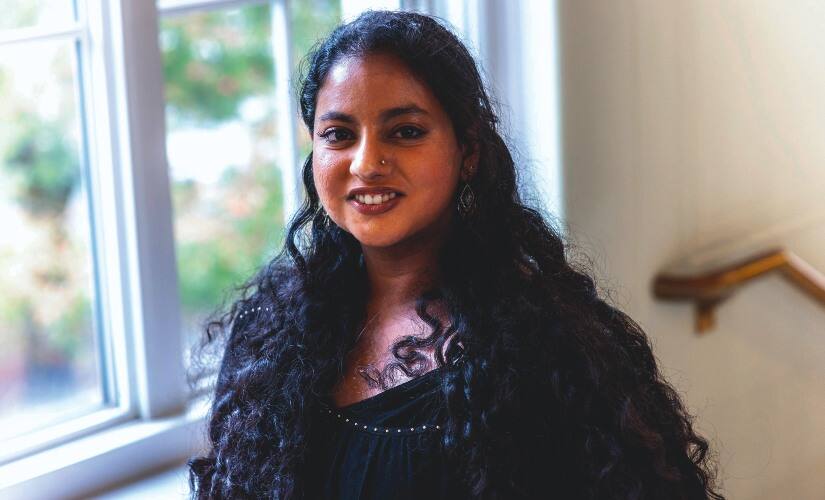The Indian diaspora, especially in the US, has long been a subject of interest and intrigue. The newest writer to explore this subject is debutante author Namrata Verghese, who unravels the many layers that constitute the Indian experience in America in her sparkling collection of short stories, The Juvenile Immigrant. With her precise narration and razor-sharp observations in stories of infidelity, mental illnesses and racial identities, she explores the themes of dislocation and disruption. In an interview with Firstpost, the young author discusses her characters, their trajectories and what the American Dream signifies for people of Indian origin in 2019. Why did you opt for short stories as a form in The Juvenile Immigrant? Is it because the form allows you to tell more stories? I actually started writing these stories in high school and, over the following years, would write more snippets whenever the mood struck me. So I never really made the conscious decision to write a short story collection; it was only further down the line that I saw how connected the pieces were — a realisation that motivated this publication. I do think short fiction was the right choice for my first book, though, because the form allowed me to experiment and play with voice, perspective, and length (some of the flash pieces, for instance, are no more than a few paragraphs long) in a way that is more difficult in a longer form, like a novel. [caption id=“attachment_7363771” align=“alignnone” width=“825”]  Namrata Verghese. Photograph courtesy Kay Hinton[/caption] Many stories contain strong connections to India. Can Indians abroad shake off their roots? For that matter, can any immigrant do so? In the US, immigrants are often referred to with a prefix before the word “American” — Chinese-American, Indian-American, etc. No matter how many generations they’ve lived in America, they’re never able to shake off that prefix. I imagine the hyphen between the two halves of immigrant identities as a see-saw; you can lean closer to “Indian” or “American,” but you’ll always be both. This brings up a lot of angst for some of the characters in my book: Neal, for instance, is frustrated that “his insides don’t match his outsides". I don’t necessarily agree with him.
In fact, far from being mutually exclusive, I think the two halves of the Indian-American identity serve to inform and enrich each other.
You speak of racism and the death of Srinivas Kuchibhotla , and the titular story ‘Juvenile Immigrant’ also centers on this subject. Would you say racism has become more ubiquitous in present times? I don’t think racism has become ubiquitous so much as it has always been ubiquitous — the only difference is that we’re now more vocal about calling it out. The world has always been structured hierarchically; there has always been a privileged class that advances at the expense of an oppressed class. Racism is just one example of this (others, of course, include casteism, sexism, and so on), but, in contemporary America, it’s a particularly charged example. America is founded on the backs of slaves, and the current landscape cannot be untangled from the country’s history of racial struggle. Manifestations of this longstanding crisis can be as subtle as extra security screenings at an airport, or as blatant as a mass shooting by a white supremacist. It’s critical, then, in this fraught moment in history, that Indian-Americans and other minorities in the US stand together in solidarity and against every form of tyranny. In ‘Monsoon’, where a character is not able to take her grandfather’s favourite mango tree to the US, I felt as though what was perhaps your own wistfulness was translated into the character. How personal would you say this book is? It’s funny that you ask this question, because quite a few other readers have also felt ‘Monsoon’ must be autobiographical. In reality, my grandfather is alive and well — gifting him my book, with its dedication to him, was one of the proudest moments of my life. I want to clarify that the book is a work of fiction; however, at the risk of contradicting that statement, I also believe that good fiction is always born from a kernel of truth. That kernel doesn’t have to be in the plot; rather, it can be in the emotion I’m trying to evoke, or the themes I’m trying to explore. The truth that I built ‘Monsoon’ around, for example, is that, like the story’s protagonist, I have always had a complicated relationship with the idea of “home”. The story #sareenotsorry sees a young girl using her grandmother’s sari for a social media hashtag. How do you think the younger generation in the US views their parents’ motherland? While I, of course, can’t claim to speak for the entire younger generation, what I see commonly is an odd clash of nostalgia and estrangement.
We tend to fetishise certain symbols and customs — henna, Bollywood, the example of the sari from the story — as stand-ins for a connection to our heritage, because barriers such as language and distance hinder our active participation in our culture.
That said, I do believe we’re all deeply proud of our roots. I think “Subtle Curry Traits” — a Facebook meme page, which is, incidentally, hilarious — is one of the best examples of diasporic attachment to the motherland. It includes Indians from far-flung corners of the world, from Australia to the UK, but we all laugh at the same jokes about the similarities in our upbringings; we all bond over our peculiar and particular relationship to our home country.


)
)
)
)
)
)
)
)
)



